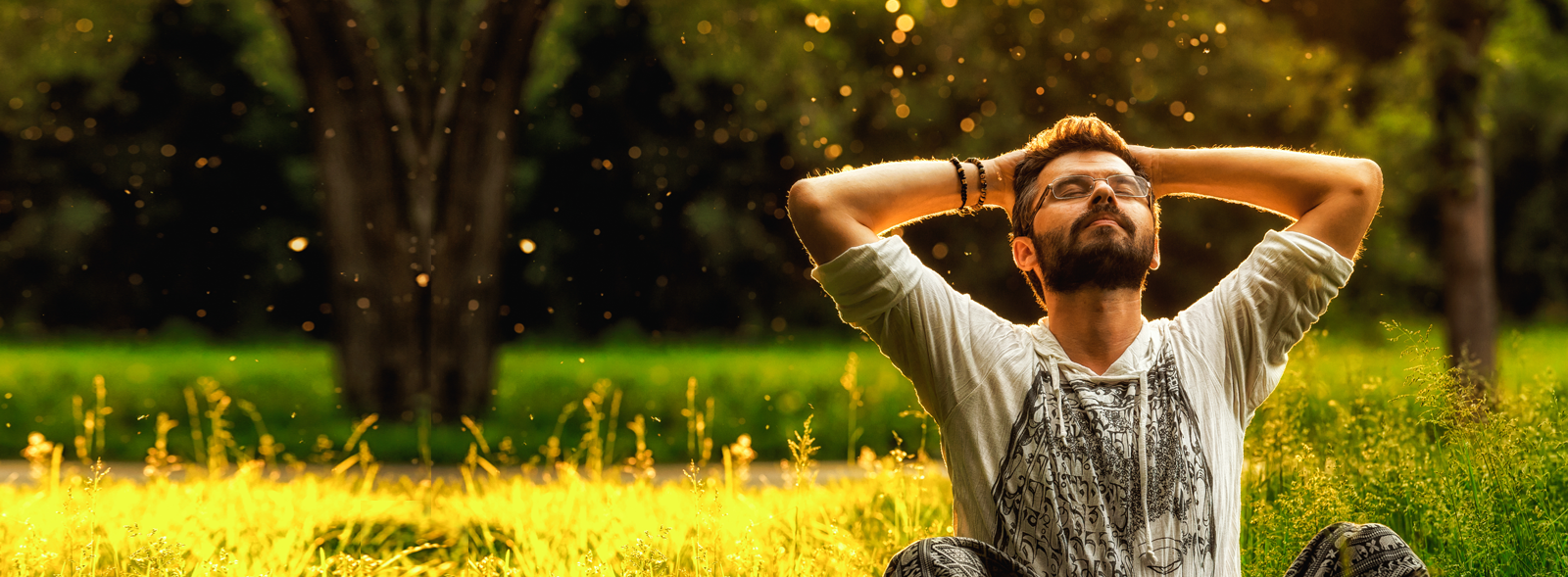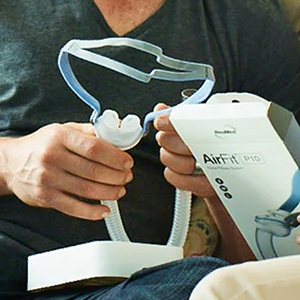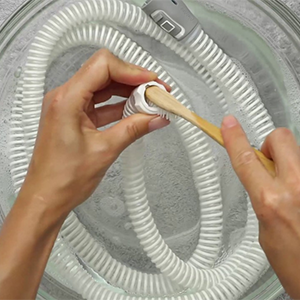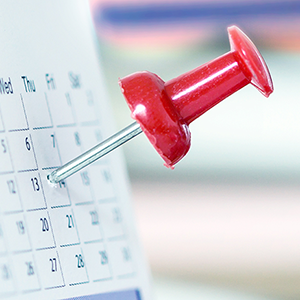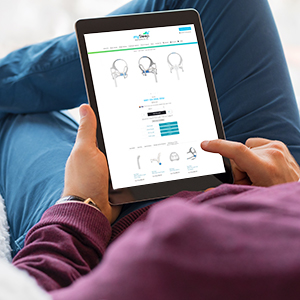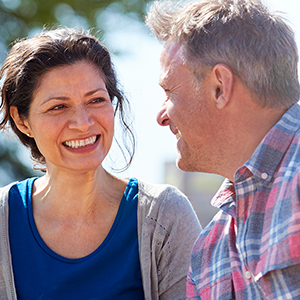Benefits of using Humidification with your CPAP Device
A CPAP humidifier helps you to avoid getting a dry mouth (which nearly 40% of CPAP patients can experience)1 along with dry nose, running nose, chapped lips, sinus-type headaches and nose bleeds.
When we breathe naturally, our noses act as humidifiers, warming up the inhaled air to our bodies’ own temperature so that it’s more comfortable to breathe, and it won’t damage the delicate tissues of our upper airway and lungs, and does not wake us up, as cold air might.
The air coming through a CPAP machine needs its own humidification because it’s entering our upper airway faster than our noses can warm it. This is especially true for those who live in colder or drier climates and/or require high CPAP pressures. Humidification adds moisture and warms the pressurized air you are receiving from your device, reducing the chance of dryness.
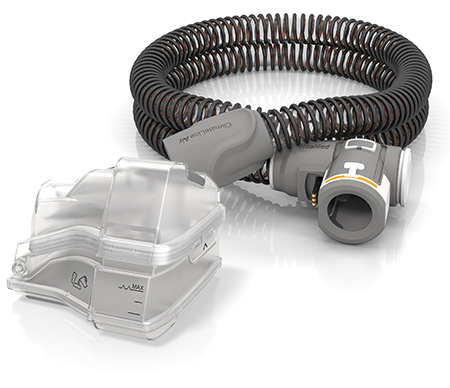
Common causes of dry mouth
Your CPAP machine can be positively life-changing in many ways, such as restored sleep, more energy, improvement of other existing health conditions). But we know it can also be challenging at times too.
That’s why we’ve examined some common complaints related to CPAP and dry mouth. We hope our tips can help you achieve better sleep apnea treatment and a good night’s sleep!
1. Medications or other medical conditions
Before you blame your CPAP for your dry mouth, it’s important to rule out other possible causes. The Mayo Clinic lists six potential non-CPAP causes that you should discuss with your doctor first:
- Oral medications that list dry mouth as a side effect
- Aging
- Cancer drugs
- Nerve damage (as result of an injury or surgery)
- Tobacco or methamphetamine use
- Other health conditions:
o Sjogren’s syndrome and HIV/AIDS can cause dry mouth
o Stroke and Alzheimer’s disease can cause a perception of dry mouth, even though the salivary glands are functioning normally2
2. Mask Leak
If you have a humidifier but still have a dry mouth, it’s possible your mask is leaking. If so, you’re likely not benefiting from the humidification as your mask may be leaking air. Checking the mask fit and headgear strap tightness is a great way to try and reduce the leak. For more information see our article Solving Some Common CPAP Mask Problems.
Whether or not your CPAP machine has humidification, a mask leak can also cause dry mouth, as well as reduce the effectiveness of your sleep apnea treatment.
3. Non-Heated Air
If you determine that your CPAP machine’s air is likely causing your dry mouth, you may benefit from added moisture through a heated humidifier and/or heated tubing. As previously mentioned, humidification devices feed moisture into the air you breathe through your CPAP machine to prevent dryness. The heat level can be easily adjusted to provide more or less moisture to suit your requirements. View our Heated CPAP Hoses
4. Incorrect Mask
If neither humidification nor mask leakage is the problem, you might have the wrong mask for your breathing habits. If you breathe through your mouth and are using a nasal mask or nasal pillows, not only are you likely not getting sufficient pressure to reduce your sleep apnea, but most of your air is probably escaping through your mouth, drying it out. Talk to your mySleep expert to see if adding a chin strap or switching to a full face mask would be a good next step. You can also see our Mask Fitting videos for additional information on your mask here.
Need further assistance?
If you have tried these suggestions, but you are still having issues with dryness, speak to a mySleep expert today! Contact us on 1300 605 700 or fill in our Contact Form
(1) Easybreathe.com. 2013. http://www.easybreathe.com/blog/heated-humidification-can-offer-cozy-nights-sleep-right/ (accessed August 14, 2014).
(2) Mayo Clinic. 2014. http://www.mayoclinic.org/diseases-conditions/dry-mouth/basics/causes/con-20035499 (accessed August 14, 2014).

Your Sleep Health Journey


